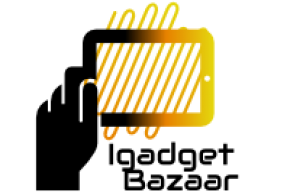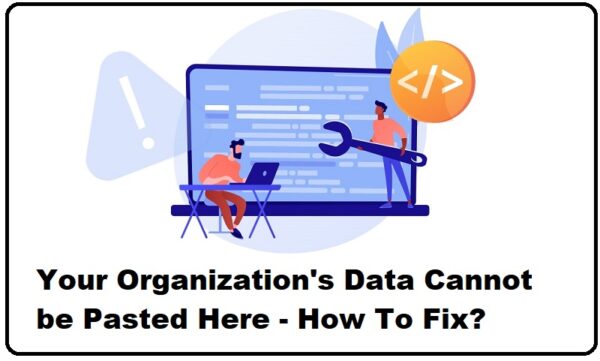Unveiling the Impact of MooncakeEva’s OnlyFans Leak
MooncakeEva OnlyFans Leak: In the digital age, privacy has become a cherished commodity, yet it’s increasingly vulnerable due to the proliferation of content-sharing platforms and social media networks. The recent incident involving MooncakeEva’s leaked content on OnlyFans underscores the ethical and legal complexities surrounding online privacy breaches, prompting a closer examination of the implications and offering guidance on safeguarding personal information.
Unraveling the Scandal: MooncakeEva’s OnlyFans Leak
MooncakeEva, a prominent creator on OnlyFans known for exclusive adult content, found herself at the center of controversy when her private materials were illicitly accessed and disseminated to the public. OnlyFans, a subscription-based platform renowned for its adult content, serves as a platform where creators like MooncakeEva share explicit images and videos with paying subscribers.
The unauthorized disclosure of MooncakeEva’s content, comprising graphic sexual content, ignited outrage and raised significant concerns regarding data privacy, consent, and ethical considerations.
Key Ethical Questions Raised by the MooncakeEva OnlyFans Leak
The MooncakeEva OnlyFans leaks sparked a multitude of ethical inquiries, chiefly concerning privacy and consent. Key considerations include:
- Privacy Breach: Subscribers who pay for exclusive content on OnlyFans expect it to remain private and accessible solely to other subscribers. The breach compromised both MooncakeEva’s privacy and that of her subscribers.
- Consent: Consent is paramount in any adult content-sharing platform. Creators like MooncakeEva share content with subscribers who have expressly indicated their desire to view it. However, the breach resulted in the dissemination of this content to a broader audience without proper consent.
- Trust and Reputation: Content creators rely on trust and reputation to attract and retain subscribers. Leaks can tarnish their online presence and erode subscriber trust.
- Financial Loss: Many creators rely on platforms like OnlyFans for financial stability. Leaks can lead to financial repercussions if subscribers cancel their subscriptions due to privacy concerns.
Legal Ramifications of the MooncakeEva OnlyFans Leak
The leak involving MooncakeEva’s content on OnlyFans carries not only moral implications but also significant legal consequences.
- Copyright Infringement: The content compromised in the leak unequivocally falls under MooncakeEva’s copyright, and its dissemination without her consent constitutes a clear violation of copyright law.
- Privacy Legislation: Given that the breach involves the unauthorized disclosure of sensitive sexual material, it is likely that privacy laws have been infringed upon. The specific laws breached would depend on the jurisdiction in question.
- Violation of Terms of Service: Like many online platforms, OnlyFans has terms of service that expressly prohibit the unauthorized sharing of content. Those responsible for the leak may face legal repercussions for violating these terms.
- Digital Millennium Copyright Act (DMCA): In the United States, the DMCA provides copyright holders with the ability to request the removal of unlawfully shared content from online platforms. MooncakeEva could utilize the DMCA to have the leaked content removed if it has been unlawfully disseminated.
These legal considerations highlight the serious nature of the MooncakeEva OnlyFans leak and underscore the importance of upholding copyright and privacy laws in the digital realm.
Protecting Your Online Privacy
The MooncakeEva OnlyFans leak underscores the crucial importance of safeguarding your privacy while navigating the digital landscape. Whether you’re a content creator or a frequent internet user, here are steps you can take to enhance your online privacy:
Use Strong Passwords:
Ensure each of your online accounts has a robust and unique password. Consider using a password manager to create and store complex passwords securely.
Enable Two-Factor Authentication (2FA):
Activate 2FA whenever possible for an added layer of security. This requires entering a secondary code, often sent to your smartphone, along with your password.
Understand Platform Regulations:
Familiarize yourself with the terms of service for the platforms you use, including social networks and content-sharing sites. Know what is allowed and what violates the rules.
Exercise Caution with Personal Information:
Avoid sharing sensitive personal information online, especially in public forums. Be mindful of how you disclose personal details in internet posts and comments.
Review Privacy Settings:
Regularly check and update the privacy settings on your social media accounts to control who can see your content and access your information.
Use Secure Communication:
Employ end-to-end encrypted messaging tools for sending sensitive information to ensure its security.
Monitor our Online Reputation:
Conduct periodic searches for your name to discover and address any unauthorized or sensitive information that may be publicly available.
Report Privacy Breaches:
Promptly report any instances of inappropriate content or privacy breaches encountered online to platform administrators or relevant authorities.
Final Thoughts
The MooncakeEva OnlyFans leak sheds light on the intricate intersection of privacy, consent, ethics, and the law in our digital era. It underscores the imperative of respecting individuals’ privacy and consent, not only for content creators but also for all internet users.
While holding perpetrators of privacy violations accountable is essential, it’s equally vital for individuals to take proactive steps to safeguard their own online privacy. By adhering to best practices for online security and privacy, we can contribute to creating a digital environment that is safer and more respectful for everyone.
FAQs about MooncakeEva’s OnlyFans Leak
What exactly happened in the MooncakeEva OnlyFans leak?
The MooncakeEva OnlyFans leak involved the unauthorized access and dissemination of private content belonging to MooncakeEva, a well-known creator on the OnlyFans platform. This content, which included explicit images and videos, was shared without her consent, sparking controversy and raising concerns about privacy and consent.
What are the ethical implications of the MooncakeEva OnlyFans leak?
The leak raises significant ethical questions surrounding privacy, consent, and trust. Subscribers to OnlyFans expect their paid content to remain private, and the breach compromised not only MooncakeEva’s privacy but also the trust of her subscribers. Consent is also a key issue, as the leaked content was disseminated without the explicit consent of those involved.
What legal repercussions could arise from the MooncakeEva OnlyFans leak?
The leak may have legal consequences, including potential copyright infringement and violations of privacy laws. MooncakeEva’s content is protected by copyright, and its unauthorized distribution constitutes a violation of her rights. Additionally, the disclosure of sensitive material without consent may breach privacy laws, depending on the jurisdiction.
How can individuals protect their online privacy in light of incidents like the MooncakeEva OnlyFans leak?
To safeguard their online privacy, individuals can take several proactive measures, including using strong passwords, enabling two-factor authentication, understanding platform regulations, exercising caution with personal information, reviewing privacy settings, using secure communication channels, monitoring their online reputation, and promptly reporting privacy breaches.
What lessons can be learned from the MooncakeEva OnlyFans leak?
The incident underscores the importance of respecting privacy and consent in the digital age. It highlights the need for robust privacy measures, ethical considerations, and legal protections to safeguard individuals’ rights online. Additionally, it serves as a reminder for both content creators and internet users to prioritize privacy and security in their online interactions.




